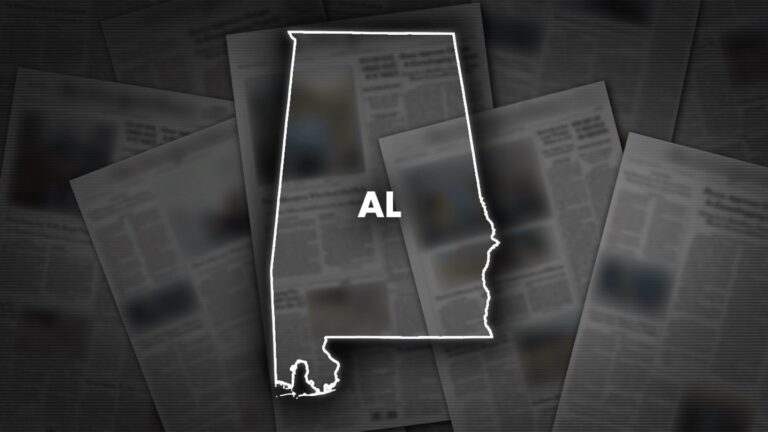Alabama legislators Legislation was advanced Thursday that could allow librarians to be prosecuted under the state’s obscenity law for providing “harmful” material to minors, the latest in a wave of proposed legislation. law in Republican-led states targeting library content and decisions.
The Alabama House of Representatives voted 72-28 for the bill which now goes to the Alabama Senate. The legislation comes amid a growing number of book challenges — often centered on LGBTQ content — and efforts in a number of states to ban readings of drag queen stories.
ALABAMA LAWS MOVE FORWARD BILLS GUARANTEEING BIDEN’S APPEARANCE ON NOVEMBER BALLOT
“This is an effort to protect children. This is not a Democratic bill. This is not a Republican bill. This is a grassroots bill to try to protect children,” Republican Representative Arnold Mooneythe bill’s sponsor, said during the debate.

Alabama lawmakers have proposed legislation that could allow librarians to be prosecuted for providing “harmful” materials or programs to minors.
The Alabama bill removes the existing exemption for public libraries in the state’s obscenity law. It also expands the definition of prohibited sexual conduct to include any “sexual or gender-oriented conduct” in K-12 public schools or public libraries that “exposes minors to persons wearing clothing or sexually revealing, exaggerated or provocative costumes, or disrobing or engaging in lewd or lascivious dancing, displays or activities.
Under the process provided for in the bill, a librarian from a public library or a public K-12 school could face a misdemeanor charge if the librarian fails to remove the material or cease conduct that violates the state’s obscenity law within seven days receipt of a written complaint from the public.
Opponents argued that the proposal would threaten librarians with criminal prosecution at the whims of community members who disagreed with their decisions about books and programs.
“This process will be manipulated and used to arrest librarians you don’t like, not because they have committed criminal acts. It’s because you don’t agree with them,” said Rep. Chris England, a Tuscaloosa Democrat, during the debate.
Craig Scott, president of the Alabama Library Association, said libraries already have long-standing procedures in place to review content for appropriateness and for the public to submit challenges if they disagree with a decision.
“Why do they come to libraries or do they think they can come and run the place better than us as professionals?” » Scott said in a telephone interview. He predicted the state would lose “court case after court case” if the bill becomes law.
In July, a judge temporarily blocked Arkansas from enforcing a similar law that would have allowed criminal prosecution of librarians and booksellers for providing “harmful” materials to minors.
Scott, who began his career in 1977, said he has never seen anything like the current climate. He said the Gadsden Public Library, where he works, saw one person — who eventually got a role in library governance — challenge 30 books. Most book challenges relate to books with content about gender identity. But they also included a book about a boy who wants to become a ballet dancer, he said.
“We are for the whole community. We have to be. We have books here that are on the far right. We have books on the far left. But the library is for the whole community. We have to stay at the middle as best we can, and they want to push us to the far right,” Scott said.
Republican Rep. David Faulkner, who worked on a replacement version of the House-approved bill, disputed that the bill could have a far-reaching impact. He said courts have long interpreted what constitutes obscene content.
The law removes immunity that K-12 students and public libraries enjoyed under obscenity law, but it limits when prosecutions could occur, Faulkner said.
“It will only be a misdemeanor, and that’s only if, after becoming aware of the material, they did nothing,” he said.
CLICK HERE TO GET THE FOX NEWS APP
Rep. Neil Rafferty, a Birmingham Democrat, said he was concerned that the bill’s language would allow someone to “target and harass people who may be dressed up in Halloween costumes” or to wear summer clothes that someone considers too revealing.
“I feel like it’s a violation of the First Amendment, and it’s easy to abuse,” he said.


